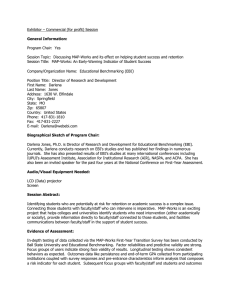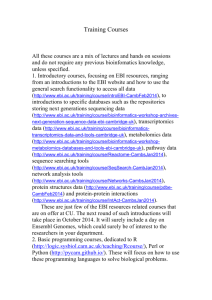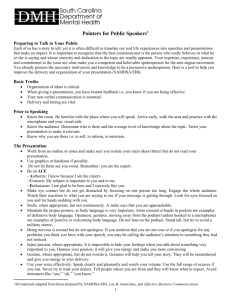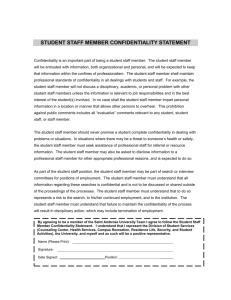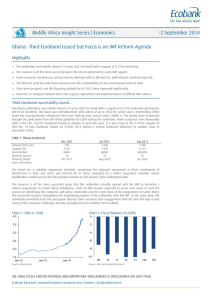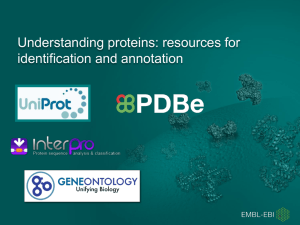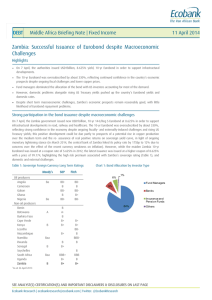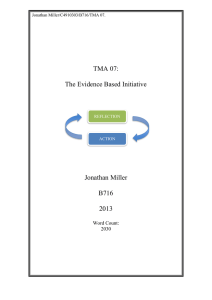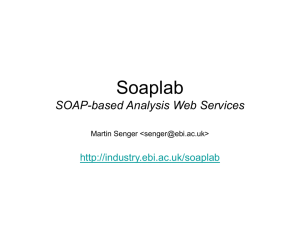Confidentiality and the Use of EBI Benchmarking Study Data
advertisement
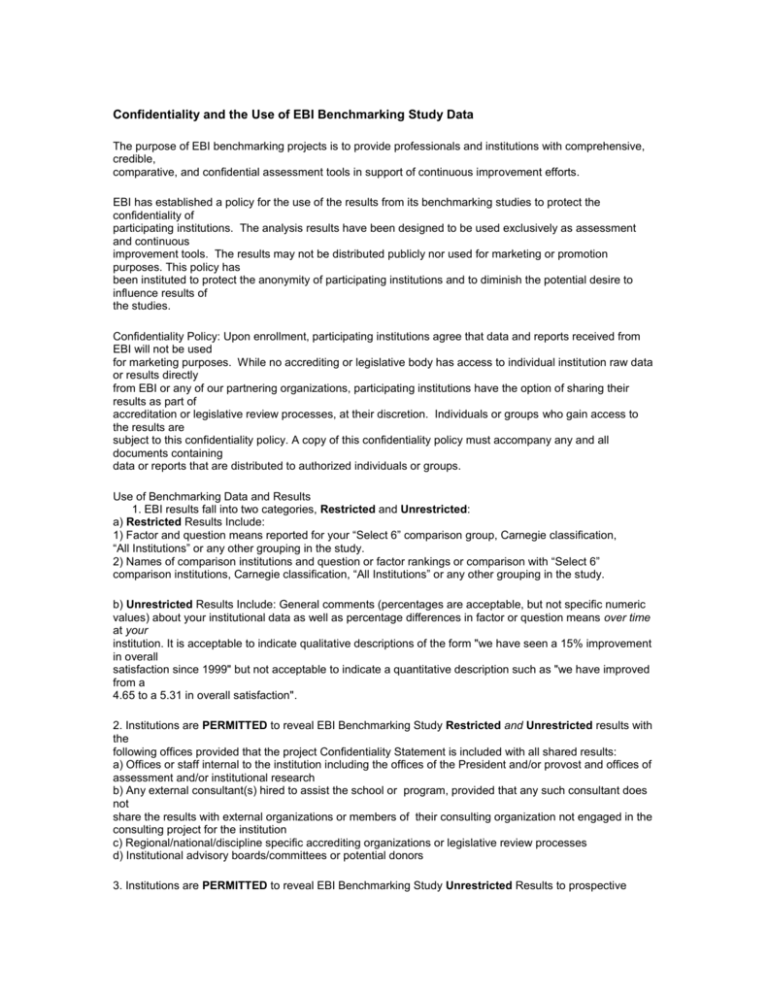
Confidentiality and the Use of EBI Benchmarking Study Data The purpose of EBI benchmarking projects is to provide professionals and institutions with comprehensive, credible, comparative, and confidential assessment tools in support of continuous improvement efforts. EBI has established a policy for the use of the results from its benchmarking studies to protect the confidentiality of participating institutions. The analysis results have been designed to be used exclusively as assessment and continuous improvement tools. The results may not be distributed publicly nor used for marketing or promotion purposes. This policy has been instituted to protect the anonymity of participating institutions and to diminish the potential desire to influence results of the studies. Confidentiality Policy: Upon enrollment, participating institutions agree that data and reports received from EBI will not be used for marketing purposes. While no accrediting or legislative body has access to individual institution raw data or results directly from EBI or any of our partnering organizations, participating institutions have the option of sharing their results as part of accreditation or legislative review processes, at their discretion. Individuals or groups who gain access to the results are subject to this confidentiality policy. A copy of this confidentiality policy must accompany any and all documents containing data or reports that are distributed to authorized individuals or groups. Use of Benchmarking Data and Results 1. EBI results fall into two categories, Restricted and Unrestricted: a) Restricted Results Include: 1) Factor and question means reported for your “Select 6” comparison group, Carnegie classification, “All Institutions” or any other grouping in the study. 2) Names of comparison institutions and question or factor rankings or comparison with “Select 6” comparison institutions, Carnegie classification, “All Institutions” or any other grouping in the study. b) Unrestricted Results Include: General comments (percentages are acceptable, but not specific numeric values) about your institutional data as well as percentage differences in factor or question means over time at your institution. It is acceptable to indicate qualitative descriptions of the form "we have seen a 15% improvement in overall satisfaction since 1999" but not acceptable to indicate a quantitative description such as "we have improved from a 4.65 to a 5.31 in overall satisfaction". 2. Institutions are PERMITTED to reveal EBI Benchmarking Study Restricted and Unrestricted results with the following offices provided that the project Confidentiality Statement is included with all shared results: a) Offices or staff internal to the institution including the offices of the President and/or provost and offices of assessment and/or institutional research b) Any external consultant(s) hired to assist the school or program, provided that any such consultant does not share the results with external organizations or members of their consulting organization not engaged in the consulting project for the institution c) Regional/national/discipline specific accrediting organizations or legislative review processes d) Institutional advisory boards/committees or potential donors 3. Institutions are PERMITTED to reveal EBI Benchmarking Study Unrestricted Results to prospective students, current students, alumni or organizations external to the institution. This includes release of results through publications viewed by external populations (e.g. external newsletters, news releases, websites or marketing materials). 4. Institutions are NOT PERMITTED to reveal EBI Benchmarking Study Restricted Results to prospective students or organizations external to the institution. This includes release of results through publications viewed by external populations (e.g. external newsletters, news releases, websites or marketing materials). 5. Workshop and Professional Publications Confidentiality Statement: EBI supports the educational objective of participants who wish to share with fellow professionals their experiences using results of EBI Studies for continuous improvement, including the sharing of results analysis techniques at conferences designed to facilitate the effective use of project results and via Professional Publications. Project confidentiality guidelines for presentations and Professional Publication materials are as follows: Presenters and authors may share their own results analysis, the aggregate results of “all institutions”, the aggregate results of the Carnegie Class Analysis, and the aggregate results of their “Select 6” comparison group, so long as the “Select 6” institutions are not individually identified. Any questions about the interpretation of the EBI Confidentiality Requirements should be directed to Info@Webebi.com. EBI has established this policy on behalf of participating institutions because it believes institutional anonymity and confidentiality of data and results are essential to maintaining the long-term integrity of its projects.
